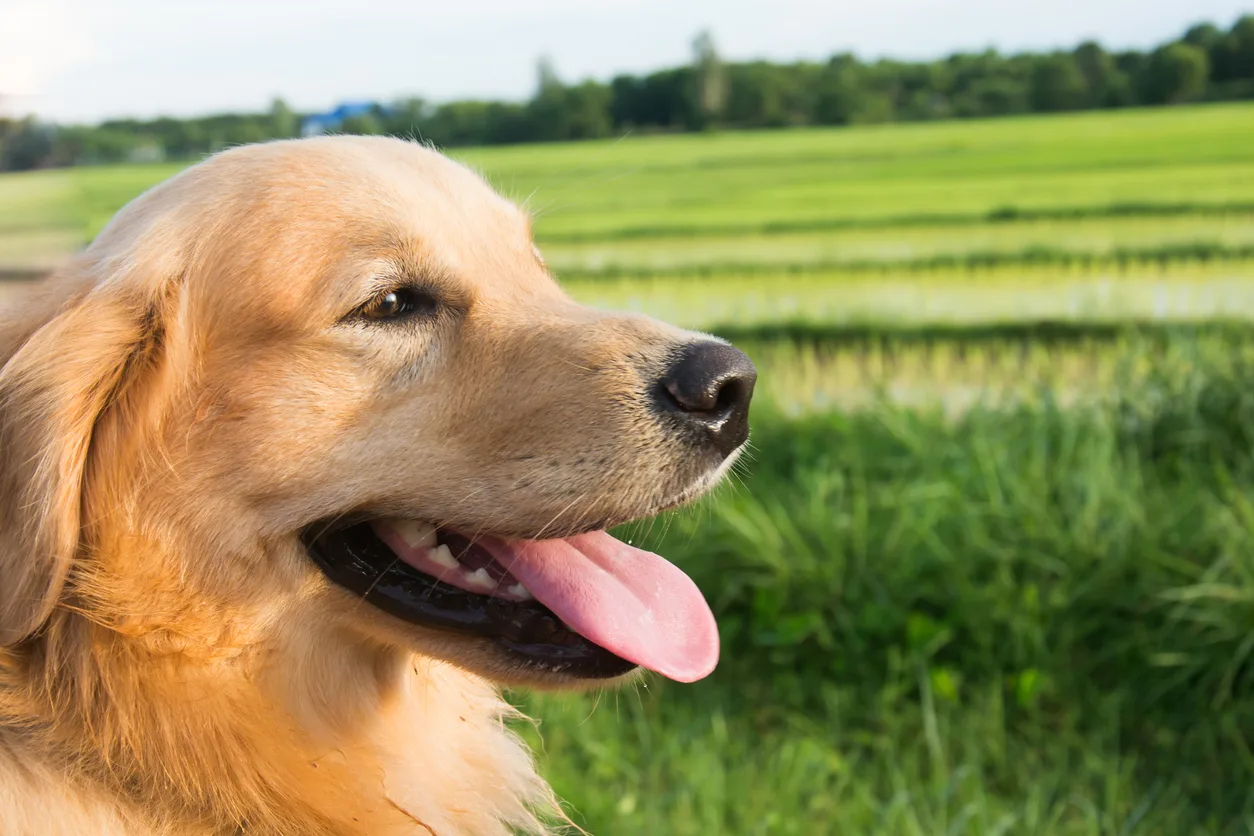It doesn’t matter if you’re a first-time dog owner or a seasoned pro – you will at some point encounter someone, somewhere, who will offer you some unsolicited advice on how to care for your dog. No matter how well-intentioned people are, some just don’t realize they’re spreading ridiculous myths. Here are some to be aware of if you ever come across them.
All Dogs Are Colorblind
Dogs are not colorblind. Period. This is one of those myths that has been passed down for ages and ages. The colors we see are controlled by photo-receptors. While both humans and dogs have two (rods and cones), human eyes have more cones and dogs have more rods. This means that, while pups may not see as many colors as we do, they have superior night vision and are better at tracking movement. They can see colors, but mostly in the yellow-to-blue spectrum, missing out on “human” reds, greens and oranges.
Warm Noses = Sick Dogs
Your body temperature fluctuates throughout the day, right? The same happens with dogs. Sometimes their noses are warm, sometimes they’re cool. Your dog isn’t necessarily sick because their nose is warm. They could be overheated, or be genetically predisposed to being a bit warmer. Just because your forehead feels warm doesn’t mean you have a fever. If in doubt, use a thermometer or call the vet.
Dogs Need to Lick Their Wounds to Heal
This is gross, and also not true. While there are some enzymes in dog saliva that could aid in healing, there are other nasty mouth germs mixed in as well. Dogs licking their wounds only serves to keep the area moist and exposes it to bacteria. This can make the wound a breeding ground for said bacteria, increase the risk of infection, and slow the healing process. If in doubt, rinse your dog’s wound to clean dirt out. Your best bet, though, is to seek veterinary care.
Dogs Eat Grass When They’re Sick
A lot of people think dogs eat grass when they are sick, generally to induce vomiting. This is one of those cause-and-effect things people observed and got backwards.
Your dog isn’t eating grass because he’s sick and needs to vomit. Your dog is vomiting because he ate too much grass. Some dogs like to graze because they think it’s fun, or they like the taste. It can irritate the stomach, though, especially if you have treated your lawn with chemicals. Talk to your vet if frequent canine vomiting is an issue.
Dogs Don’t Need Annual Exams
No. No! Also…no. It’s not true for humans and it’s not true for dogs.
While there is a question about whether or not dogs need annual vaccines (other than rabies, which most states require), there is no reason to skip your pup’s annual well-visit. Preventative care costs much less than treating chronic diseases. Your dog should have a yearly check-up to make sure they’re healthy and on-track to live a long life. If you have any concerns regarding which vaccines your dog needs, ask your vet.
My Indoor Dog Doesn’t Need Parasite Treatment
While your dog might spend very little time outdoors, the reality is that most dogs go outside at least sometimes – even if just to defecate. A short walk to the car or exposure to other animals at the groomer is all it takes for a flea to hitch a ride with your dog. Fleas and ticks can even stick to you and then hop onto your dog. The tiny critters can also enter through screens and find your dog, especially if your pup spends a lot of time near windows. All dogs should be treated for parasites on a regular basis.
Kidney Disease Is Uncommon
There is a misconception that only older dogs will develop kidney problems, but younger dogs can and do suffer as well. Also, some breeds are more prone to developing the condition than others. Pay attention to whether your dog is drinking a lot or urinating more frequently. These can be symptoms of canine diabetes or of kidney failure. The sooner your dog gets treatment, the better their chance of recovery.
Table Scraps Are OK in Moderation
Many will disagree, but table scraps shouldn’t ever be OK for a dog. A small piece of fresh broccoli or a few carrot slices won’t cause any harm, but everything else is too risky. Onions, grapes, nuts, bones, and foods with artificial sweeteners are all dangerous to dogs. Salt, carbs, and preservatives aren’t their friends, either. Problems can range from gastrointestinal upset to pancreatitis — sometimes even fatal food poisoning from toxic substances. The reality is that you are in control of what your dog eats. Keep them on a diet of dog food and appropriate canine treats, and they’ll never miss the table scraps.
Some myths about dog health sound more plausible than others. Your dog is relying on you to make sound decisions and keep them safe. Always talk to your breeder or your veterinarian if you have questions or doubts about the advice you’re given. They’ll make sure you get the information you need to keep your dog healthy from birth through adulthood!

